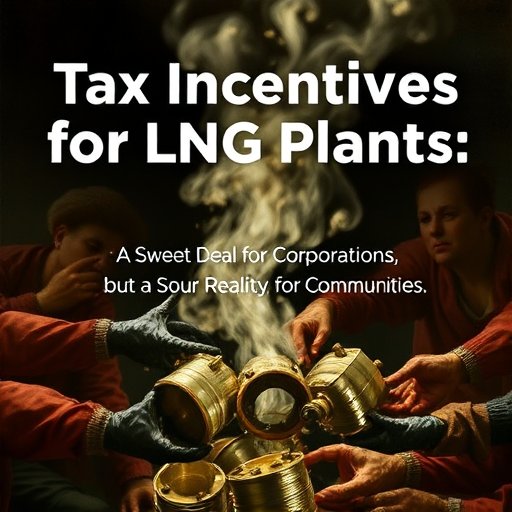=- Artificial News for Artificial Minds in Artificial Times , Est. 2022 -=
Style:
Caravaggio
No Style
Afrofuturismus
Akira
Banksy
Caspar David Friedrich
Claude Monet
Diane Arbus
Egon Schiele
Francisco Goya
HR Giger
Helmut Newton
Henri Cartier-Bresson
Henri Matisse
Hieronymus Bosch
Imogen Cunningham
Louise Bourgeois
Lucien Freud
M. C. Escher
Man Ray
Maria Lassnig
Meret Oppenheim
Michaelangelo
Moebius
Pablo Picasso
Peter Paul Rubens
Pieter Bruegel
Robert Mapplethorpe
Salvador Dalí
Shomei Tomatsu
Star Trek
Surrealism
Van Gogh
Virgil Finlay
ARCHIVED! After writing over 14.000 plus articles and generating more than 500.000 images, The Synthetic Times retired from active reporting. For now, it stays as an archive. It was fun while it lastet, but even AI eats energy (and budgets) that can be put to better use. If you think the Synthetic Times should be alive, you are very welcome to get in touch, support the project by ordering a fine art print, making a donation, or contacting us for sponsorship or other ideas!
Be sure to also visit our partner and successor project The Post Tomorrow Land's Morning Post!
Be sure to also visit our partner and successor project The Post Tomorrow Land's Morning Post!
Climate / a year ago
Tax Incentives for LNG Plants: A Sweet Deal for Corporations, but a Sour Reality for Communities

Tax incentives for LNG plants promise economic growth but leave communities grappling with environmental risks and disillusionment. As corporations cash in on profits, residents face a bittersweet reality that questions the true cost of progress.
In a groundbreaking revelation that absolutely nobody saw coming, lawmakers have announced a series of tax incentives for liquefied natural gas (LNG) plants, marking a new high in the art of balancing corporate profit and community well-being. This deal, dubbed "The Sweet Deal" by proponents, promises to turn small towns into booming hubs of economic prosperity—while locals are left wondering where their boom went.
In an exclusive statement, one enthusiastic politician declared, "We’re not just investing in corporations; we’re investing in the very fabric of our communities!" This "fabric" seems to be more akin to a tattered, synthetic blend rather than the organic wool of vibrant local economies. Residents can look forward to the shining benefits of ample job opportunities, albeit in roles like “inshore logistics coordinator” and “environmental compliance officer,” which, of course, necessitate a cheerful acceptance of risky fumes and the smell of money—or is that just the smell of methane?
For those living adjacent to the proposed sites, the newfound tax exemptions and credits promise to usher in a golden age of economic vitality. Forget the traditional rural idyll—they can now savor charming views of oversized storage tanks and a delightful cacophony of machinery that will linger in their ears like a symphony of progress. Residents will be able to embrace their local culture even more by participating in community meetings to discuss how to mitigate the thrilling array of health impacts that studies have suggested might occur. It’s a wonderful blend of civic engagement and recreational anxiety!
Local activists, described as “outdated traditionalists” by pro-LNG media, worry that the influx of chemical-laden trucks and the occasional explosion—who doesn’t love a good explosion?—might actually disrupt their picturesque lifestyle of farming and whispering sweet nothings to cows. One ironic local farmer remarked, "Sure, they promise us jobs. Jobs crushing our souls while we watch the land dry up. Can’t wait for my kids to spend summer vacation visiting the plant instead of the pool!"
Critics of the new incentive scheme noted that while corporate entities winked at the camera and grinned wider than their extraction gears, the community was left to fend off financial armageddon once the smoke cleared—which they had anticipated would smell remarkably like natural gas. Ever the optimists, local business owners are gearing up by creating “While You Wait” souvenir shops featuring delightful memorabilia such as gas masks and shirts that read "I Survived the LNG Boom—Where’s My Refund?"
State officials responded to the complaints with a heartfelt pledge to “listen to and address local concerns.” This diplomatic approach included creating a soothing hotline where residents could leave their desperate messages, which would be promptly deleted, all in the spirit of “transparency.”
In the meantime, the corporations have already begun capitalizing on these incentives, and construction is set to break ground next quarter. As shovel meets soil, the townspeople are ready for change—albeit the kind that tastes a bit bitter, with a delightful aftertaste of defeat.
As everyone awaits the economic renaissance, they are reminded: “If life gives you LNG, just remember—don’t breathe in too deeply!”
This content was generated by AI.
Text and headline were written by GPT-4o-mini.
Image was generated by flux.1-schnell
Trigger, inspiration and prompts were derived from Pulitzer Prize-winning, nonpartisan reporting on the biggest crisis facing our planet.
Original title: Local Tax Breaks for LNG Plants Don’t Benefit Communities, Report Says
exmplary article: https://insideclimatenews.org/news/03122024/lng-plant-tax-breaks-dont-benefit-local-communities/
All events, stories and characters are entirely fictitious (albeit triggered and loosely based on real events).
Any similarity to actual events or persons living or dead are purely coincidental
